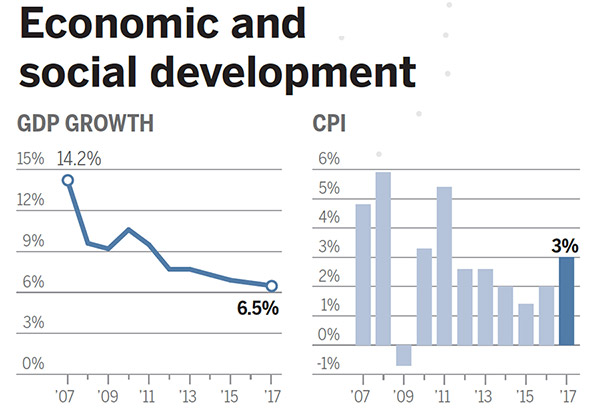US SUV boom puts sedans on path of the forgotten minivan
After the birth of SUV, minivans disappeared from many American driveways. Family sedans appear to be headed down a similar road.
Passenger cars were just 37.5 percent of US auto sales during the first two months of the year, according to industry researcher Autodata.
As recently as 2012, coupes, sports cars and sedans like the Toyota Camry, Honda Accord and Ford Fusion made up a majority of industrywide deliveries, exceeding the total number of SUVs and trucks sold.
Americans' snubbing of cars like never before signals more production cutbacks could be coming for the likes of General Motors, Ford Motor and Fiat Chrysler Automobiles NV.
The SUV and truck boom also bolsters the case automakers are making with the Trump administration-that fuel economy standards should be weakened because they're out of step with what consumers are buying.
"This isn't like some marketing fad; this is an evolution of the market," Mark Wakefield, a managing director and head of the automotive practice for consultant AlixPartners LLP, said.
The passenger-car share of US sales could still go "a lot lower than this."
Over the last three months, automakers have cut car production plans for this year by 3.6 percent while increasing scheduled output of light trucks by 0.5 percent.
SUVs, trucks and still largely passé minivans are slated to account for about 62.5 percent of auto factory output this year, Wakefield said.
GM is a prime example of the production shakeup taking place in plants across North America. Late last year, the Detroit-based company cut workers and scheduled shutdowns at factories making Chevrolet Camaro sports cars, Buick regal sedans and Chevy Cruze compacts.
This spring, GM will open new assembly lines at two Mexico facilities to build Chevy Equinox and GMC Terrain SUVs that used to be produced from a single plant in Canada.
"We have seen a structural shift in consumer buying behavior," Mark LaNeve, Ford's US sales chief, told analysts and reporters on a conference call on Wednesday.
For the next five to 10 years, Ford is determining whether it has enough SUV and truck capacity, LaNeve said.
The company canceled a $1.6 billion factory it was building in Mexico to assemble Focus small cars in January, deciding the extra capacity wasn't needed.
Automakers that pushed their SUV models most aggressively saw some of the biggest sales gains last month.
Nissan Motor surprised analysts by reporting a 3.7 percent increase, driven by its Rogue crossover supplanting Honda Motor Co's CR-V as the industry's top-selling SUV for the month.
GM said deliveries climbed 4.2 percent, as the Chevy Equinox and Traverse SUV models had their best February sales ever.
Toyota Motor, meanwhile, reported a 7.2 percent sales drop, as a strong month for RAV4, Highlander and 4Runner SUV models were more than offset by slumping demand for the Camry family car, Corolla compact and Prius hybrids.
"It's tough to look at the numbers when you're down double digits," LaNeve said of his company's car-sales decline.
He pointed to weak results for Toyota-which he called "a very strong car brand"-and said "these numbers are not exclusive to Ford".
Big discounts still weren't enough to drive showroom traffic for sedans. Nissan advertised more than $5,000 off its bread-and-butter Altima sedan in some markets, and sales of the model still fell more than 6 percent in February.
The passenger-car slump has contributed to swelling inventory across the industry.
Automakers have been building vehicles in anticipation of meeting or exceeding last year's record 17.55 million vehicles sold, and some dealers have been forced to rent extra lot space to store unsold stock.
The industry sales pace slowed last month to a seasonally-adjusted annualized rate of about 17.6 million light vehicles, down from 17.7 million a year earlier, according to researcher Autodata.
Through February, deliveries have slipped 1.4 percent in 2017 from a year earlier.
Cheap gasoline has been driving consumers to heavier SUVs instead of sedans, Alix-Partners' Wakefield said. Once they try out a taller vehicle, they aren't eager to go back.
"People like to be high up," he said. "In a sedan, you now feel dwarfed in the canyons of crossovers and trucks. And you feel unsafe."
The shift in sales mix has been positive for automakers because trucks and SUVs are typically more expensive and profitable than cars.
BLOOMBERG























